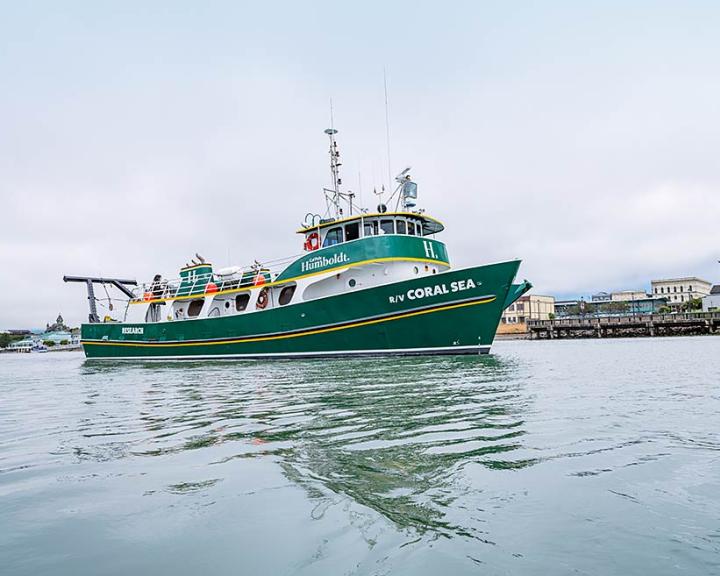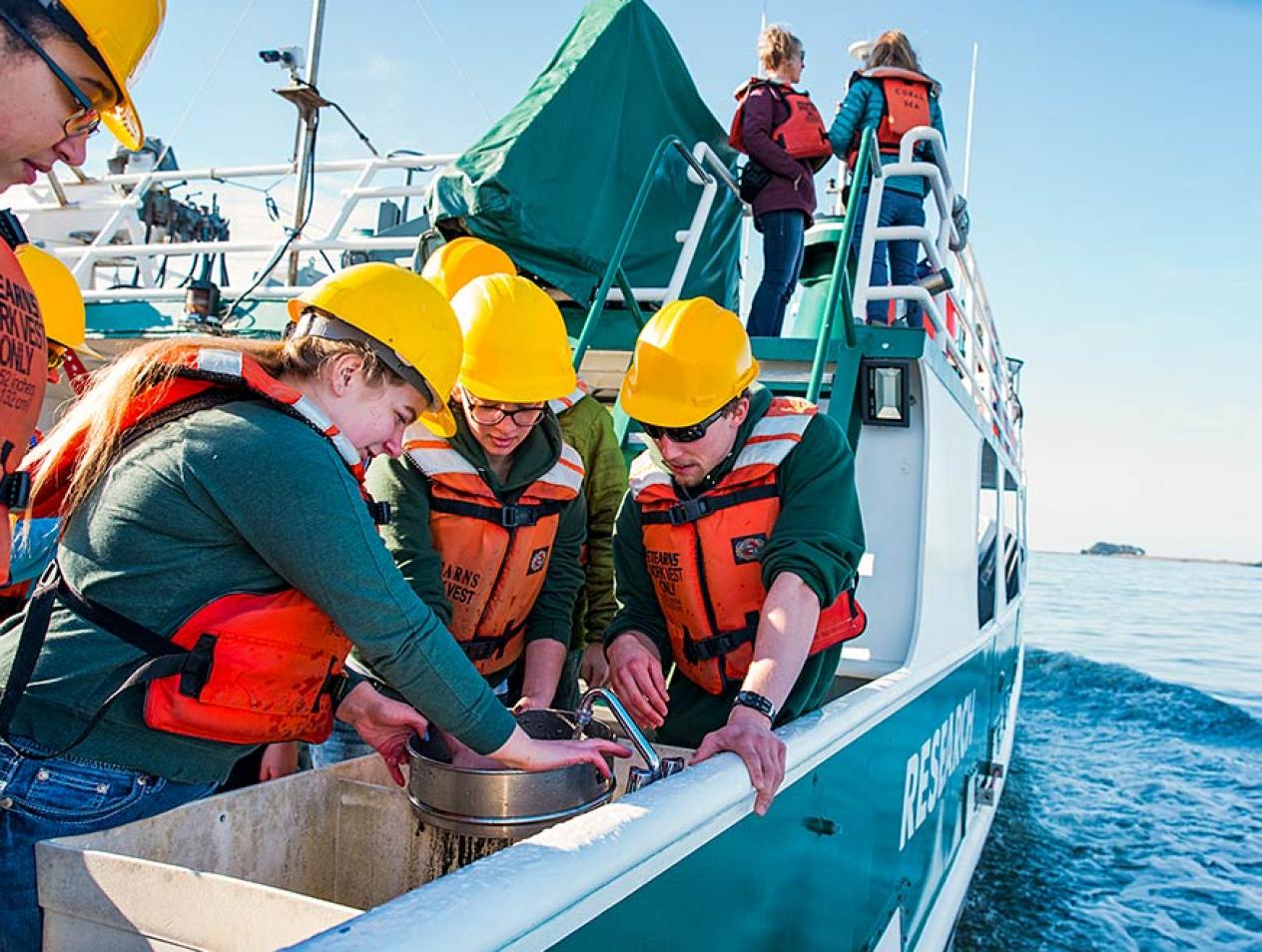Breadcrumb
Oceanography, B.S.
Among the few undergraduate programs of its kind in California and the oldest on the West Coast, a Bachelor of Science in Oceanography at Cal Poly Humboldt provides a firm foundation in the study of the physical, chemical, geological, and biological aspects of the ocean through a rigorous combination of academics and practical oceangoing experience on the North Coast.
Why This Program
Location
On a unique stretch of coastal California known as the North Coast, Humboldt is minutes away from the Pacific Ocean.
Practical Experience
The program is grounded heavily in field-based experiences including aboard our 90-foot ocean-going research vessel and at Humboldt’s Marine Lab.
Curriculum
Rigorous and broad, our program can be tailored to a range of subdisciplines in science, such as Biology, Chemistry, Geology and Physics, even SCUBA.
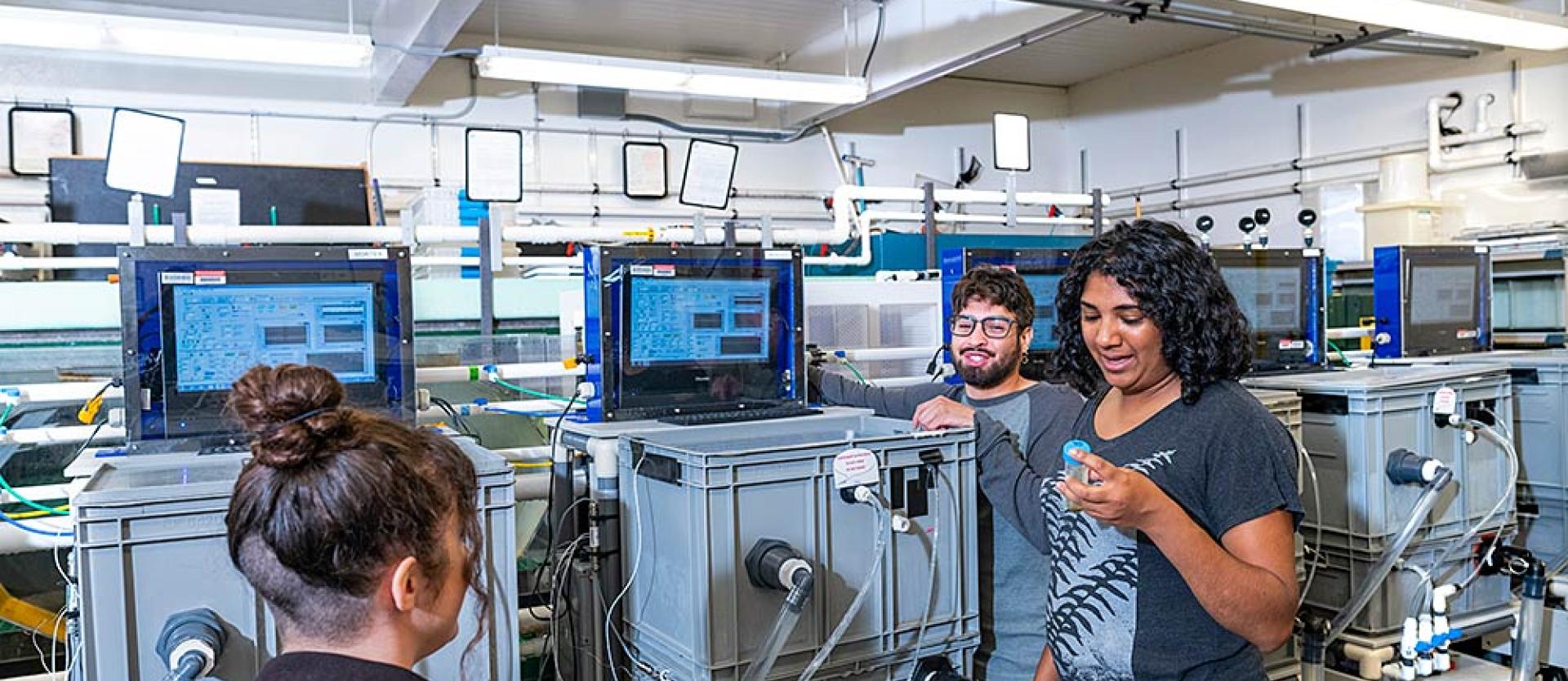
Sub-disciplines
Students who major in Oceanography can also tailor the program to a range of sub-disciplines that have an oceanic focus, making it easy to earn a minor in other disciplines such as Biology, Chemistry, and Geology.
- Biological Oceanography: the study of marine ecosystems and how they function.
- Chemical Oceanography: the study of how chemicals move through the marine environment.
- Geological Oceanography: the study of plate tectonics, classification of major bathymetric features, and the distribution, transport and deposition of recent sediments in the marine environment.
- Physical Oceanography: the study of the physical conditions and physical processes within the ocean such as waves, currents, eddies, gyres and tides.
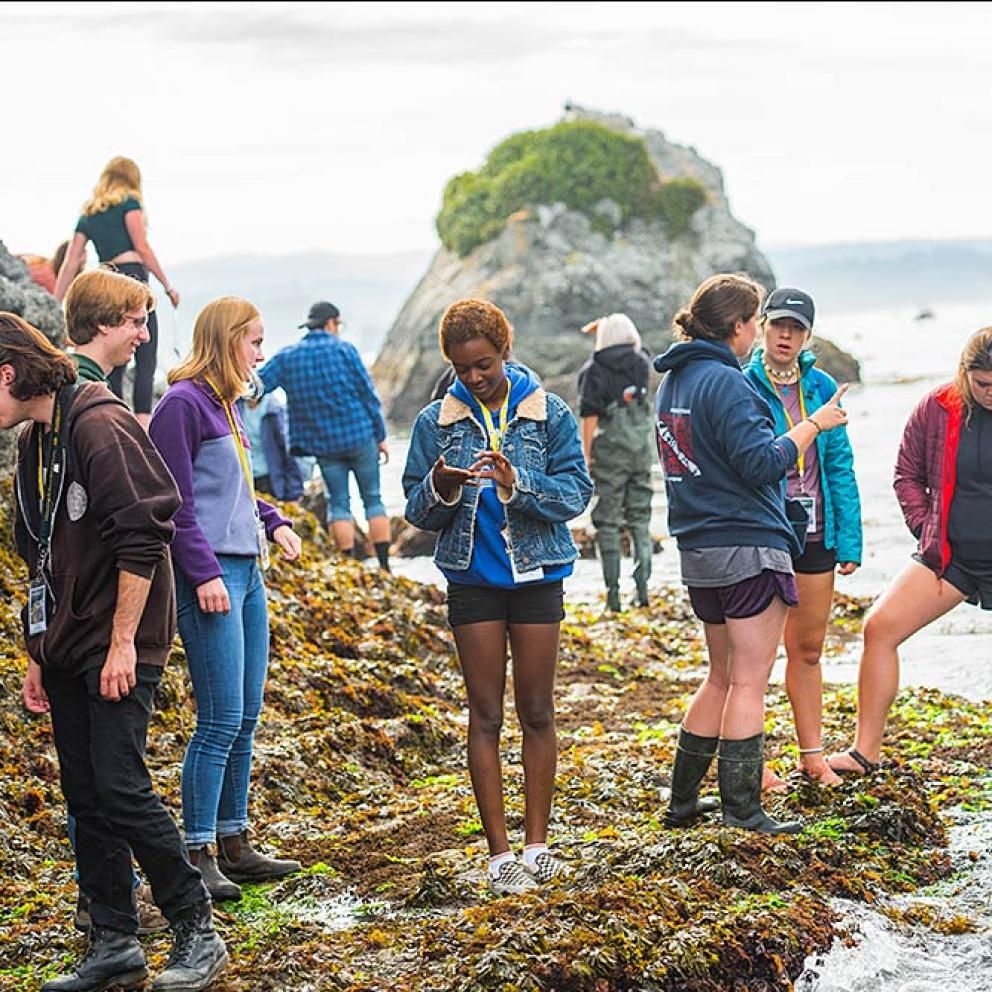
Did You Know?
Oceanography examines the entire range of ocean processes, including physics, chemistry, and geology, as well as biology. Oceanography requires understanding a broad range of scientific fields and techniques to engage with the ocean as a whole system.
The ocean covers 70 percent of the planet and is crucial to our survival.
Oceanographers pick a specialization based on the aspect of the oceans of most interest to them.
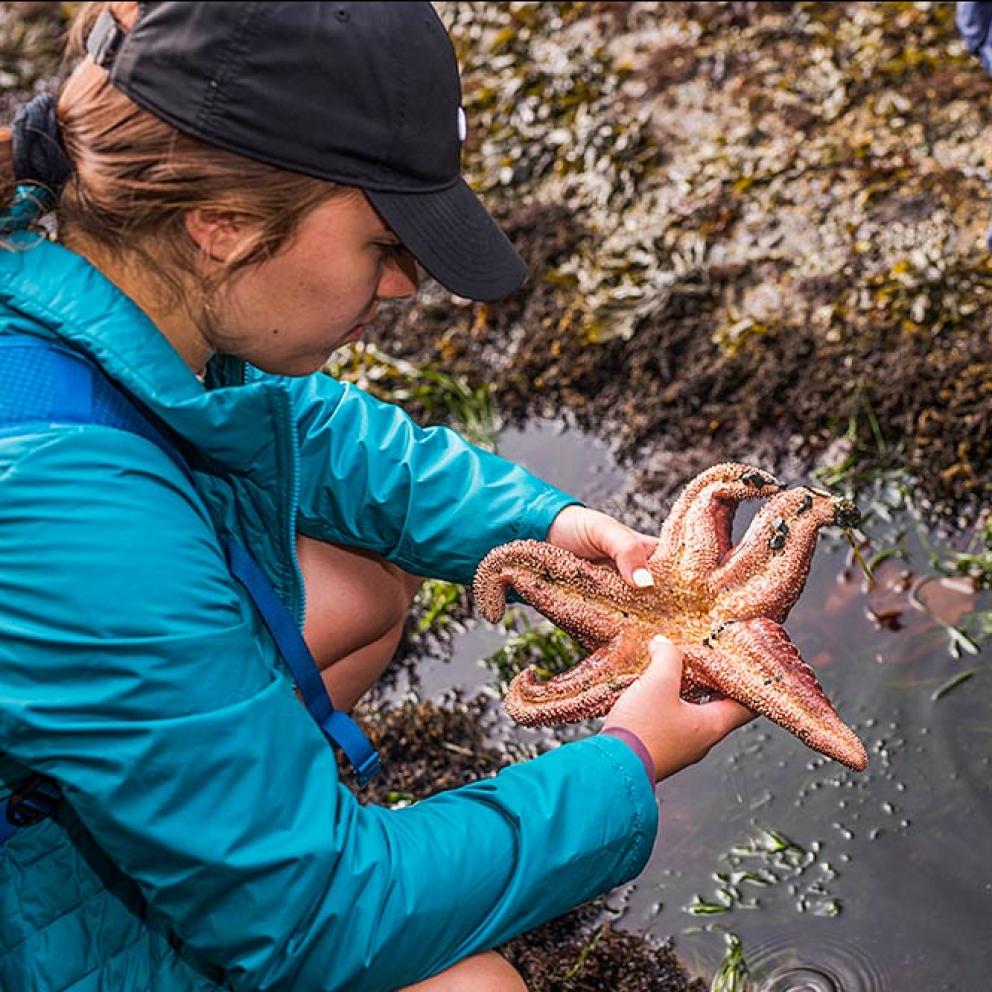
Careers
With a strong foundation in science and oceanic studies, you will have the knowledge and skills to tackle some of the most pressing issues that affect the health of our oceans and planet. Those issues include rising seawater, pollutants, the impact of human activity on marine ecosystems, and seismic activity.
- Oceanographer
- Marine Biologist
- Hydrologist/Water Pollution Technician
- Marine Resource Specialist
- Hydrographic Survey Technician
- Scientific Diver
- Research Assistant
- Laboratory Assistant
- Oceanographic Instrumentation Technician
- NOAA Corps Officer
- Physical Oceanographer
- Chemical Oceanographer
- Coastal/Ocean Engineer
- Geological Oceanographer
- Aquaculture Technician
